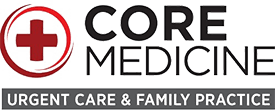With all the many things to consider as the 2024/2025 school year approaches, I would like to discuss a family concern that I have been addressing a lot in my practice. A common statement I hear is, “I get called from the school at least once a week about my child’s behavior at school, and I don’t know what to do to help him/her.” Parents often ask me. “How can I optimize the overall experience my child will have in school when they just do not sit still in school?”
Table of Contents
ADHD Symptoms in Children
-
Easily distracted
-
Does not seem to listen when spoken to
-
Runs around and climbs on things
-
Touches and plays with everything in sight
-
Often interrupts others
-
Difficulty waiting for turns
-
Blurts out answers instead of waiting to get called on
-
Constantly moving
These observations alone are not a cause of concern in all children, but they may show signs of a need to contact a Caldwell family medicine provider to get your questions/concerns addressed.
What is ADHD?
Attention-deficit/hyperactivity disorder. This condition is the most common neurobehavioral related disorder in children. – It is thought to affect up to 10% of school-aged children. About 70% of these children affected by ADHD will continue to have effects of the condition well into adolescence and 50% of those children will continue to have symptoms into adulthood. Some of the conditions that are associated with ADHD in children are:
-
Difficulties with relationships
-
Impulsivity
-
Academic underachievement
-
Low self-esteem
-
Depression
-
Anxiety
-
And even “self-medication” with substances such as tobacco, alcohol, prescription drugs, OTC medications, and illegal substances.
How is ADHD Diagnosed?
Can we get a brain scan or a blood test on my child?
There is not currently a brain scan or blood test to diagnose a child with ADHD. This condition is diagnosed by a trained provider who knows how to assess your child fully and provide a diagnosis if appropriate. A provider will talk with family and can even have teachers contribute crucial information in a diagnosis. A diagnosis comes with specific types of ADHD that include inattentive, hyperactive, or combined (both) ADHD. Many parents tell me that this diagnosis stage is the stage that they are most surprised about. Often, parents are relieved and validated with an official diagnosis because they now have something to work with and improve the child’s opportunities. Some of the opportunities for children with ADHD are:
-
School-based accommodations,
-
Counseling,
-
Medication treatments
-
Support groups for families and for children.
My Child Has ADHD, What Now?
This is a very good question. Before considering medications for people with ADHD, the provider will check to see if the child is physically well and that there are no underlying medical considerations that would contribute to the child’s difficulties or that are making the ADHD worse. Studies show that if a child is showing signs of ADHD and/or is diagnosed at the age of 6 or older, medication is the most effective treatment.
Step one is to make an appointment with a Caldwell provider and to discuss your concerns at that visit. You may be asked to fill out a questionnaire and possibly take a similar questionnaire to the child’s school for a teacher to fill out. After a full history and assessment are performed, an appropriate diagnosis can be made.
Step two is to come up with an appropriate and personalized plan of care for your child.
Step three is to keep an ongoing dialog with your child’s care team to ensure that the best and most recent options are being discussed and utilized.
Managing ADHD With Your Child
-
Learn all that you can about ADHD,
-
Look into treatment options that include the child, your family, and the care team,
-
Talk to your child’s teacher about ways he/she can help,
-
Request a meeting with your child’s education team,
-
And try to understand your child’s specific challenges and ways that they can be minimized or worked through.
If you or someone you know is asking questions about ADHD in children, please schedule an appointment to see me now, and we can work through this together on behalf of the child.

 For parents concerned about their
For parents concerned about their